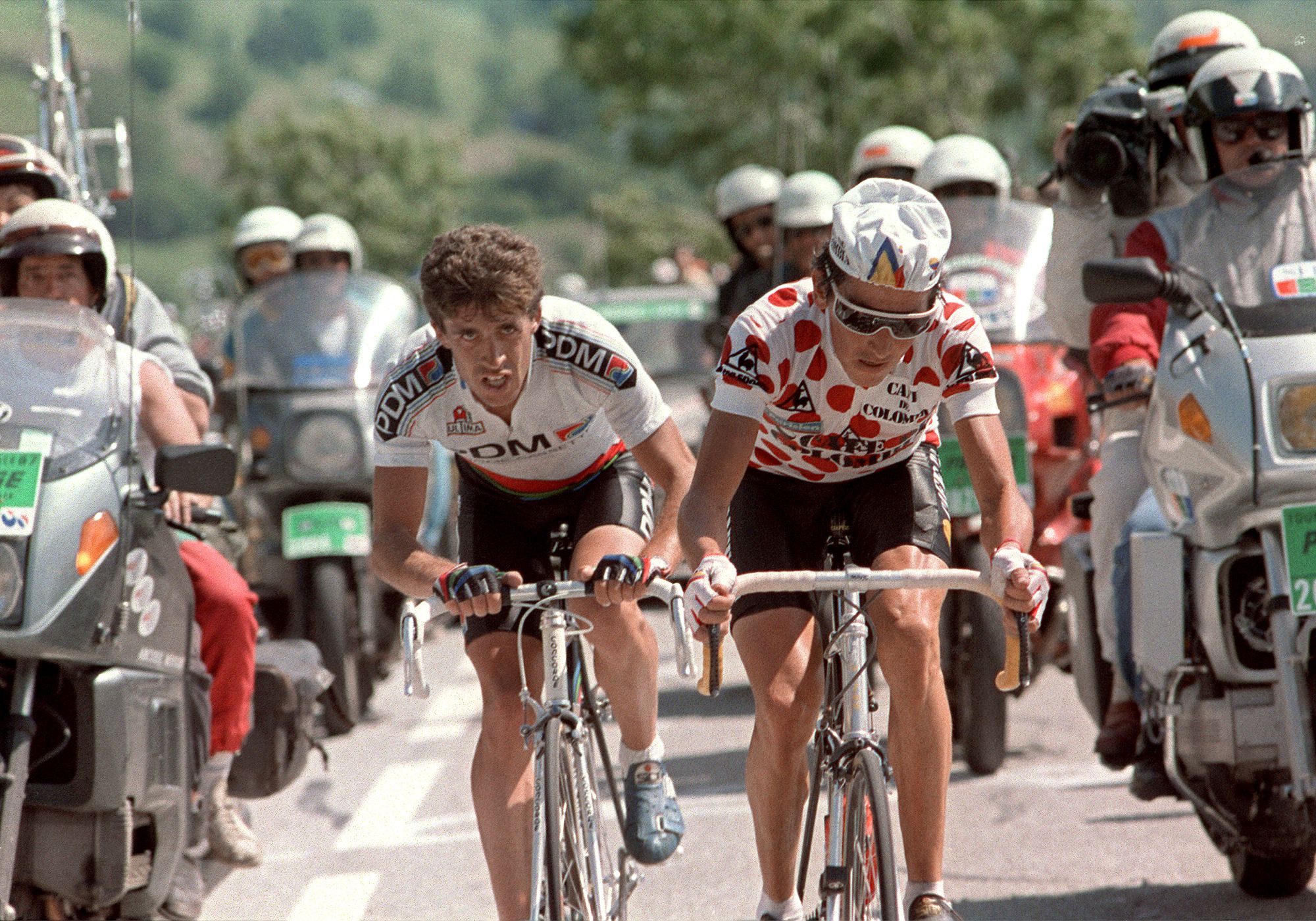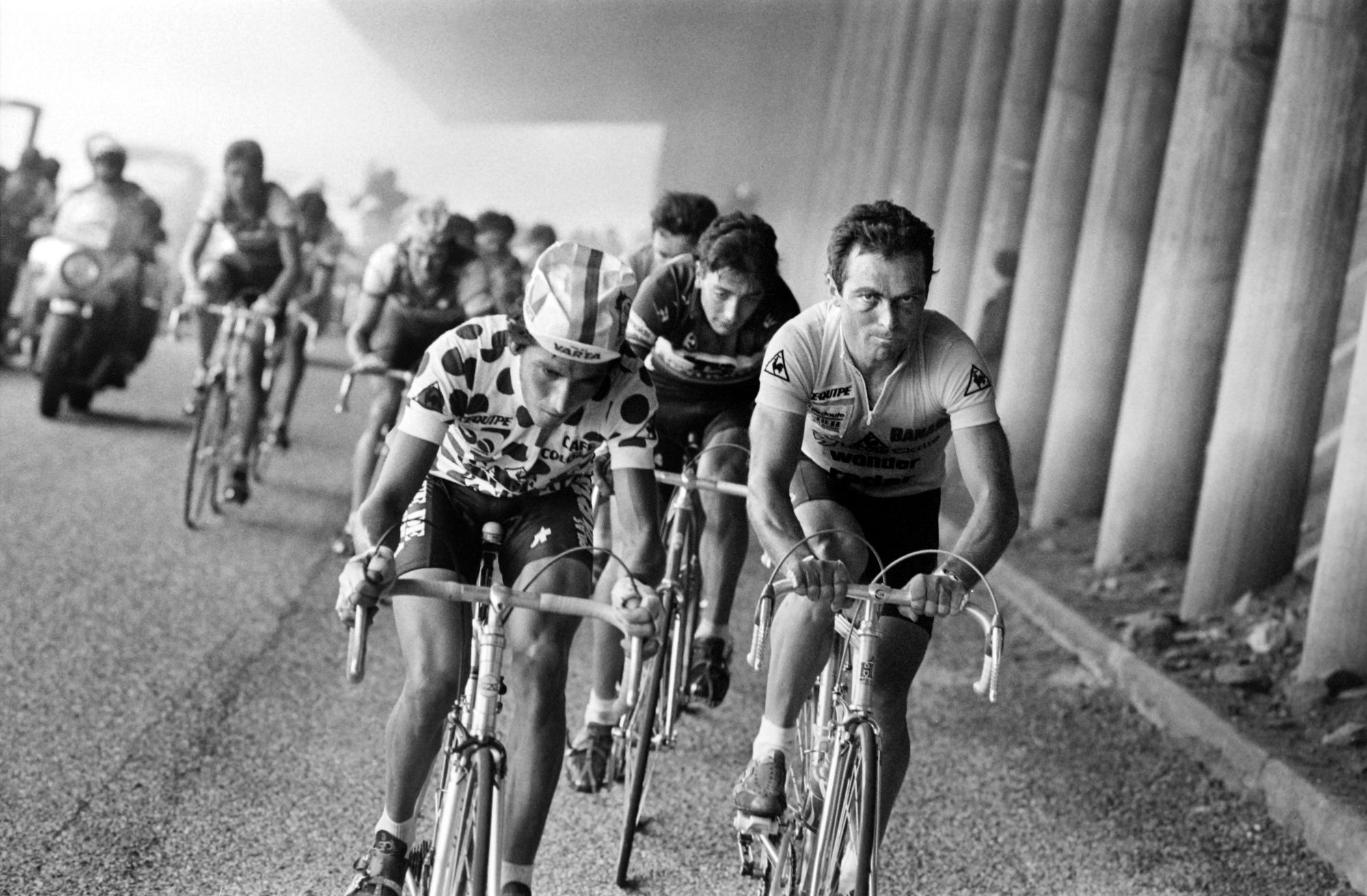
A judge in Colombia has called for an investigation to be launched after Colombian climbing sensation Luis "Lucho" Herrera, the winner of the 1987 Vuelta a España, was linked by members of a paramilitary group to the murders of four people who lived on land adjacent to his.
After arriving on the European scene in the 1980s, Herrera took the Tour de France by storm, winning three individual stages and the mountains classification on two separate occasions over a four year period.
He finished seventh overall in the 1985 Tour, behind Bernard Hinault, but beat the Frenchman to a stage win at Morzine in the Alps. The 63-year-old was widely regarded as one of the greatest talents to emerge from South America and was tipped by many to go on and win the Tour.
A report in Colombian news outlet Noticias Uno states that former members of a paramilitary group linked him to several murders. It is alleged that Herrera paid a group operating in his hometown to disappear four of his neighbours who he claimed were attempting to kidnap him. Herrera is said to have believed that the four murder victims were themselves part of a rival paramilitary faction.

Two of the men accused of carrying out the murders have reportedly testified that they later realised after the event that the individuals they had murdered were in fact not paramilitaries, and that the whole affair had been invented by Herrera to enable him to take over their property next to his.
"The same organization realized that they [the victims] were not militiamen, but that the interest was to take their lands," the report states. One of Herrera’s accusers is now serving a 22 year prison term for the disappearance of the ex-cyclist’s neighbours.
In a statement released to Spanish newspaper El Pais, Herrera denied any involvement in the killings. "I have never belonged to criminal organizations nor have I intended to harm anyone. I have dedicated my life to sports, and after my retirement from professional cycling, to working honestly."
Herrera, who also took three Giro d’Italia stage victories during his decorated cycling career, was previously kidnapped in March 2000 before being released 24 hours later. A BBC report at the time said that seven gunmen were involved in his abduction. The FARC group [Revolutionary Armed Forces of Colombia] later claimed responsibility for the incident.
The ties with paramilitaries in his home country did not go away, and the now 68-year-old was later said to have begun a friendship with Martín Llanos, a notorious paramilitary leader. His relationship with Llanos is believed to have enabled him to meet with the men who now claim that they killed Herrera’s neighbours at his request.
As well as winning the King of the Mountains competition at the Tour, Herrera’s other achievements during his career include two Critérium du Dauphiné victories in 1988 and 1991. He also won the mountains classification at the Giro in 1989, winning the same competition at the Vuelta in 1987 and 1991.
No further details are currently known about Herrera's case, but now that a judge has ordered an investigation to begin then more will likely be known in due course.







